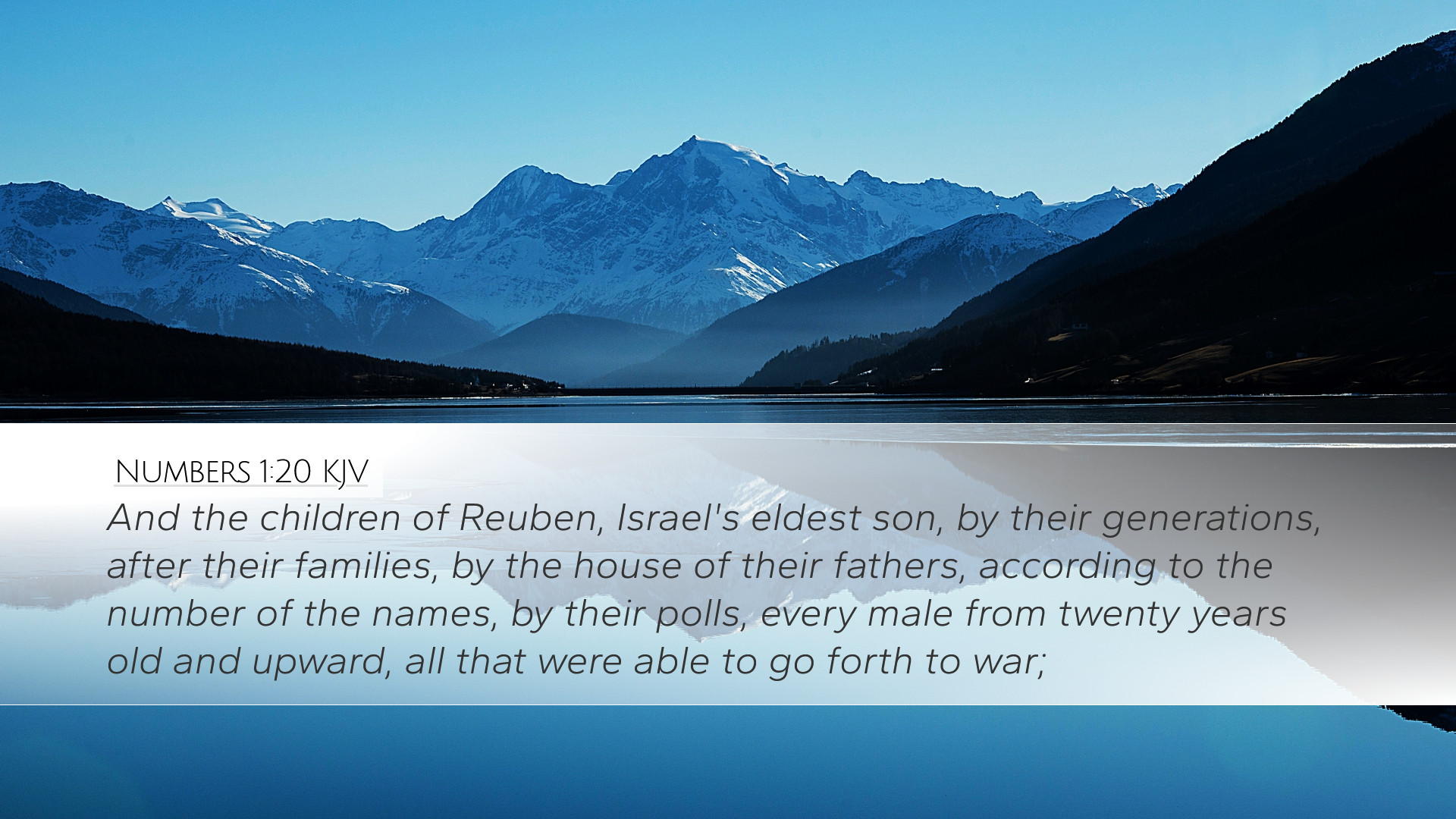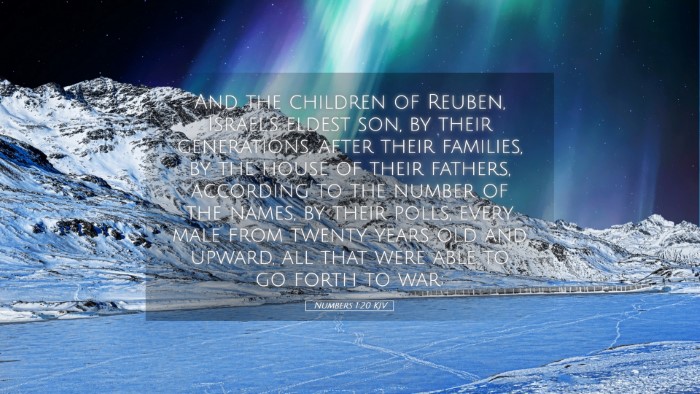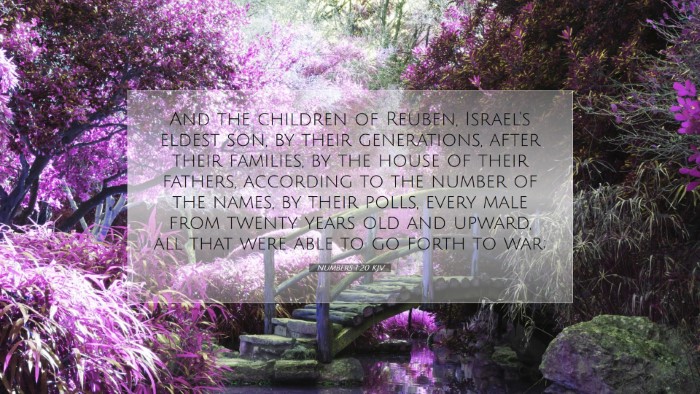Commentary on Numbers 1:20
Numbers 1:20 states:
"And of the children of Reuben, Israel’s eldest son, by their generations after their families, by the house of their fathers, according to the number of the names, from twenty years old and upward, all that were able to go forth to war."
Introduction
The Book of Numbers is vital in understanding the organization and journey of the Israelites as they move through the wilderness. Numbers 1:20 serves as a critical junction in establishing the census of the tribes of Israel, specifically focusing on the descendants of Reuben, the firstborn son of Jacob. This commentary synthesizes insights from esteemed public domain scholars to explore the significance of this verse.
Historical Context
To comprehend Numbers 1:20, we must recognize that the Israelites have recently exited Egypt and are preparing to enter the Promised Land. God instructed Moses to take a census of the people to organize them for military service and communal responsibilities.
Divine Command for Organization
Matthew Henry underscores the importance of this organization, emphasizing that God is a God of order. The numbering of the people symbolizes God's provision and the need for structure in the community. This process not only categorizes the tribes but also reaffirms the promise of land given to them.
Detailing the Tribe of Reuben
This verse specifically refers to the tribe of Reuben, which had unique characteristics and responsibilities among the Israelites. As the firstborn, Reuben had the potential for preeminence; however, his character flaws and mistakes cost him this status. Therefore, understanding Reuben's position in the Israelite camp is crucial.
Validation of Family Units
Albert Barnes remarks on the phrase "by their generations after their families," pointing out the significance of ancestral heads. This approach instills a sense of identity and belonging. Families were recognized not just as individual units but as part of a larger covenant community that God had called.
Age of Military Service
Another critical aspect of this verse is the specification of the age—those “from twenty years old and upward.” Adam Clarke highlights that this decision demonstrates the expectation of maturity and capability in leadership and warfare.
Spiritual Implications
This delineation speaks volumes about the maturity required of those engaging in spiritual battles. As pastors and theologians, one must reflect on the parallel between this ancient context and the expectations of spiritual maturity in today's leaders.
Theological Reflections
The census serves as a metaphor for God’s faithfulness to fulfill His promises. Each counted person signifies God's remembrance of His covenant with Israel. Matthew Henry emphasizes that although Israel was in a wilderness, God was actively cultivating a nation for Himself.
Community Identity
The gathering of individuals into families and tribes illustrates the communal aspect of faith. Just as the Israelites were called to unite for a common cause, modern believers are reminded of their collective identity in Christ. This unity is paramount in the face of divisive cultural challenges.
Conclusion
Numbers 1:20 encapsulates themes of order, identity, and collective responsibility that are foundational for readers today. The insights drawn from public domain commentaries provide a rich tapestry of understanding that challenges pastors, students, and scholars alike to reflect on their roles within the body of Christ.
Call to Action
As we learn from the past, we are called to structure our communities and our lives around God’s order, remaining ever mindful of the legacy we inherit from our spiritual forebears. May we count ourselves among those faithful to God’s calling in our time, empowered by His Spirit to fulfill our roles in His kingdom.


